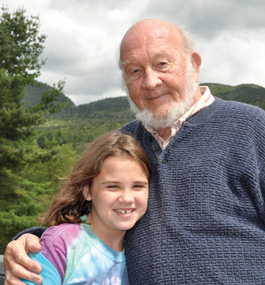
Jeanne Guillemin, PhD’73
Jeanne Guillemin, PhD’73: ‘Mind, Heart and Beauty’
The New York Times called her a “scientific sleuth.” Medical anthropologist Jeanne Guillemin, PhD’73, who passed away Nov. 15 at age 76, was a bioterrorism expert who spent decades investigating epidemics and the history of weaponized pathogens.
“Frankly, I would have been glad to study other diseases less exotic than anthrax, but after 9/11 and the letter attacks, I felt genuinely called to service,” she told Brandeis Magazine in 2012 after the release of her book “American Anthrax: Fear, Crime and the Investigation of the Nation’s Deadliest Bioterror Attack,” a critically acclaimed study of how officials responded after letters containing anthrax were sent to prominent U.S. figures in 2001.
As in two earlier books — a history of biological weapons and an investigation into a mysterious 1979 anthrax outbreak in the Soviet Union — Guillemin “demonstrated an investigative journalist’s knack for unearthing facts and a crime novelist’s approach to suspenseful narrative,” Brandeis Magazine observed.
Guillemin, who taught for 33 years at Boston College, where she was a professor of international relations and anthropology, served as a consultant to the U.S. Departments of Homeland Security and Defense, and as a senior adviser to the MIT Security Studies Program.
Her Brandeis dissertation for her PhD in sociology and anthropology, “Urban Renegades: The Cultural Strategy of American Indians,” documented how a community of Native Americans adjusted to life in an urban environment while retaining much of its traditional culture.
In the 1980s, Guillemin joined her husband, Harvard biologist Matthew Meselson, in a series of investigations into the misuse of biomedical science by government biological-weapons programs.
They were among a small team of Americans and Russians who, in 1992, undertook an independent investigation into a 1979 outbreak of anthrax in the Soviet city Sverdlovsk, caused by an accident at a secret biological-warfare lab.
Guillemin’s interviews with the families and friends of the 66 people who died and those who fell ill indicated that all the victims lived in a narrow zone parallel to the wind direction on the day anthrax spores were accidentally released from the lab.
Her most recent book, “Hidden Atrocities: Japanese Germ Warfare and American Obstruction of Justice at the Tokyo Trial,” released in 2017, was nominated for a Pulitzer Prize. It examines the failure of a post-WWII military tribunal to investigate the use of biological weapons by Imperial Japan in China in the 1940s.
The former Jeanne Garrigan, born in Brooklyn, was a 1968 graduate of Harvard College. Her 1963 marriage to the painter Robert Guillemin — Boston’s celebrated “Sidewalk Sam” — ended in divorce, and she married Meselson in 1986.
The couple lived in Cambridge, Massachusetts, and spent summers in Woods Hole, on Cape Cod, where Guillemin maintained a lively salon of humanists and scientists. In Cambridge, she took great pleasure in her writing group, a dedicated circle of five talented female writers who met monthly for 30 years.
She and her husband often visited Paris, where they had many good friends. “Her gracious manner and dedication to the life of the mind caused those who knew her to be more humane, more civil, more thoughtful,” her family wrote in a remembrance. “Mind, heart and beauty beyond compare.”
She is survived by her husband, two sons, a stepdaughter and five grandchildren.
— Mark Sullivan

Robert Preyer with great-granddaughter Maggie Preyer Friedman
Robert Preyer: A Life Well-Lived
One of Robert Preyer’s favorite lines from William Wordsworth lauds “that best portion of a good man’s life, / His little, nameless, unremembered acts / Of kindness and of love.”
When he retired from Brandeis 32 years ago, Preyer, a longtime professor of English and American literature, anonymously established the Wellington Prize. Awarded annually by lottery to a Brandeis assistant professor, this monetary prize, according to its description, is “intended to delight the senses and enliven the spirit of young men and women who will do their research in any event but not with this bequest.” In other words, the award’s aim is simple — to allow a junior faculty member to take time off to play.
The revelation that Preyer was the benefactor of the Wellington Prize came after the emeritus professor’s death on Nov. 15 at age 97. However, as Provost Lisa Lynch wrote in an email to faculty, “we will continue to call this an anonymous gift in keeping with Bob’s playful spirit.”
For Preyer, “play was essential for a life well-lived,” his family recalled in a tribute, describing him as an avid sailor, skier, tennis player and lover of the outdoors whose favorite place was Elizabethtown, New York, in the Adirondacks, where he maintained a summer home for 72 years.
The Greensboro, North Carolina, native attended Choate and Princeton, and served in the U.S. Navy from 1943-45. His doctoral dissertation at Columbia was directed by literary critic Lionel Trilling and cultural historian Jacques Barzun, and he taught at Smith, Amherst and Princeton before becoming an assistant professor of English at Brandeis in 1954. A scholar of Victorian literature and poetry who taught and lectured widely, and whose work was published in prestigious journals, he was promoted to full professor in 1964 and retired in 1987.
In his history of Brandeis, “A Host at Last,” founding president Abram Sachar excerpted a letter Preyer wrote as the English and American literature department chair. In it, Preyer says he and his fellow faculty members endeavor “to put students in complete possession of all their powers. As practical classroom teachers, we wanted them to have access to the production of first-rate minds, to enable them to experience what that meant. […] Above all, we feared the inculcation of ‘inert ideas,’ that is to say, ideas that are merely received into the mind without being utilized, or tested, or thrown into fresh combinations.”
An advocate for Brandeis’ Myra Kraft Transitional Year Program and Posse scholarship program, and a lifelong philanthropist who established the Preyer Scholarship Endowment, Preyer was a believer in social, racial and economic justice. He served on the boards of the NAACP Legal Defense Fund, the ACLU and the Posse Foundation.
He is survived by wife Mandy, three daughters, four grandchildren and seven great-grandchildren.
— Mark Sullivan
